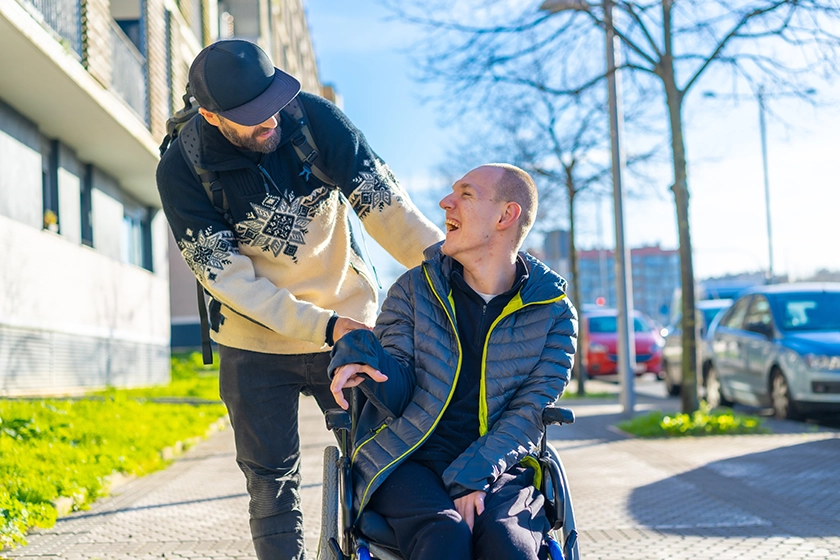Human Rights
- Select a Section for More Information
- Resources for Individuals
- Resources for Licensed Providers
- Resources for State Operated Facilities
- LHRC & SHRC
- Data & Statistics
- Contact Information
History
The foundation of the Office of Human Rights (OHR) was established on May 30, 1978 through the appointment of the first State Human Rights Director (SHRD) by the Commissioner. Prior to that appointment, the first Regulations were established. Later in that same year, the OHR began to take shape through the implementation of human rights in state facilities.
Through the years, the Regulations underwent several revisions. Name changes to the State Board and the Department brought about name changes to the Regulations, too. On November 21, 2012, the Regulations were renamed to the current Regulations to Assure the Rights of Individuals Receiving Services from Providers Licensed, Funded, or Operated by the Department of Behavioral Health and Developmental Services.
Mission
The mission of the Office of Human Rights is to monitor compliance with the Human Rights Regulations by promoting the basic precepts of human dignity, managing the DBHDS Human Rights complaint resolution program and advocating for the rights of persons with disabilities in our service delivery systems.
Accomplishing the Mission
The Office of Human Rights assists the Department in fulfilling its legislative mandate under §37.2-400 of the Code of Virginia to assure and protect the legal and human rights of all Individuals as stipulated in the Regulations to Assure the Rights of Individuals Receiving Services from Providers Licensed, Funded, or Operated By The Department of Behavioral Health and Developmental Services, otherwise known as the Human Rights Regulations (HRR). §37.2-400 of the Code of Virginia assures that each Individual has the right to:
- Retain his legal rights as provided by state and federal law;
- Receive prompt evaluation and treatment or training about which he is informed insofar as he is capable of understanding;
- Be treated with dignity as a human being and be free from abuse and neglect;
- Not be the subject of experimental or investigational research without his prior written and informed consent or that of his authorized representative.
- Be treated under the least restrictive conditions consistent with his condition and not be subjected to unnecessary physical restraint or isolation;
- Be allowed to send and receive sealed letter mail;
- Have access to his medical and mental records and be assured of their confidentiality;
- Have the right to an impartial review of violations of the rights assured under section 37.2-400 and the right to access legal counsel; and
- Be afforded the appropriate opportunities… to participate in the development and implementation of his individualized service plan.
The Human Rights Complaint Process is unique to the Office of Human Rights. It affords Individuals receiving services due process whereby complaints against assured rights and complaints involving abuse, neglect, and exploitation (ANE) can be investigated. Additionally, Individuals have the right to appeal any decision and/or action plan by a provider through our Local Human Rights Committee (LHRC). The State Human Rights Committee (SHRC) is also available to hear appeals from either the Individual or provider after going through the LHRC fact-finding hearing.
As this is an important aspect of the Human Rights process, it is necessary to ensure that our LHRC’s and SHRC continue to have valued and committed committee members. If you are interested in serving, please review our resources and recruitment materials below under the SHRC & LHRC section.






